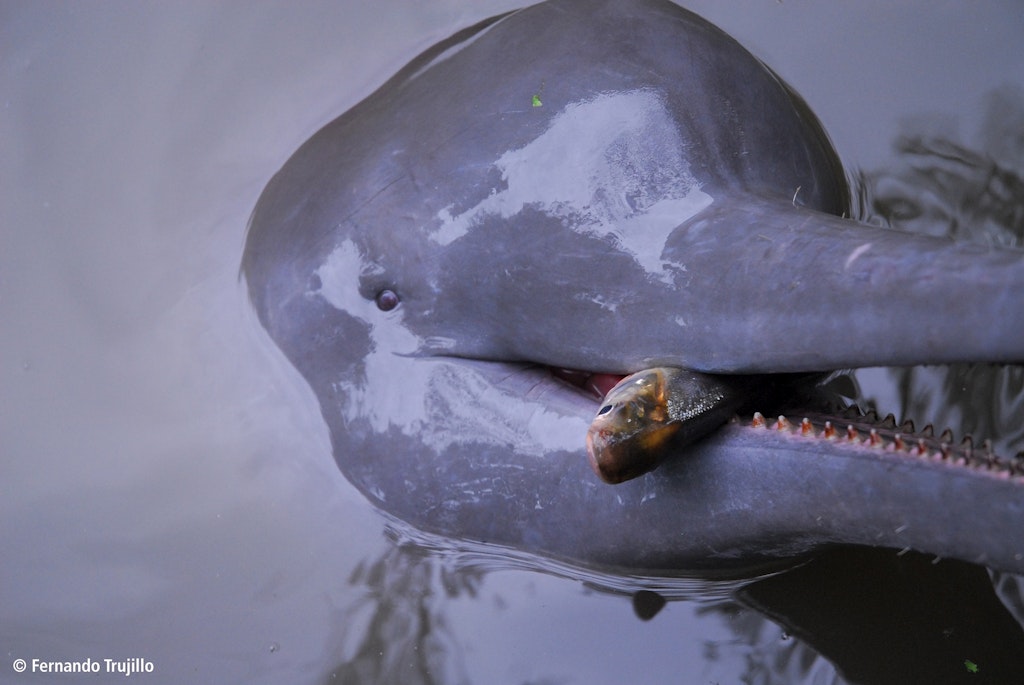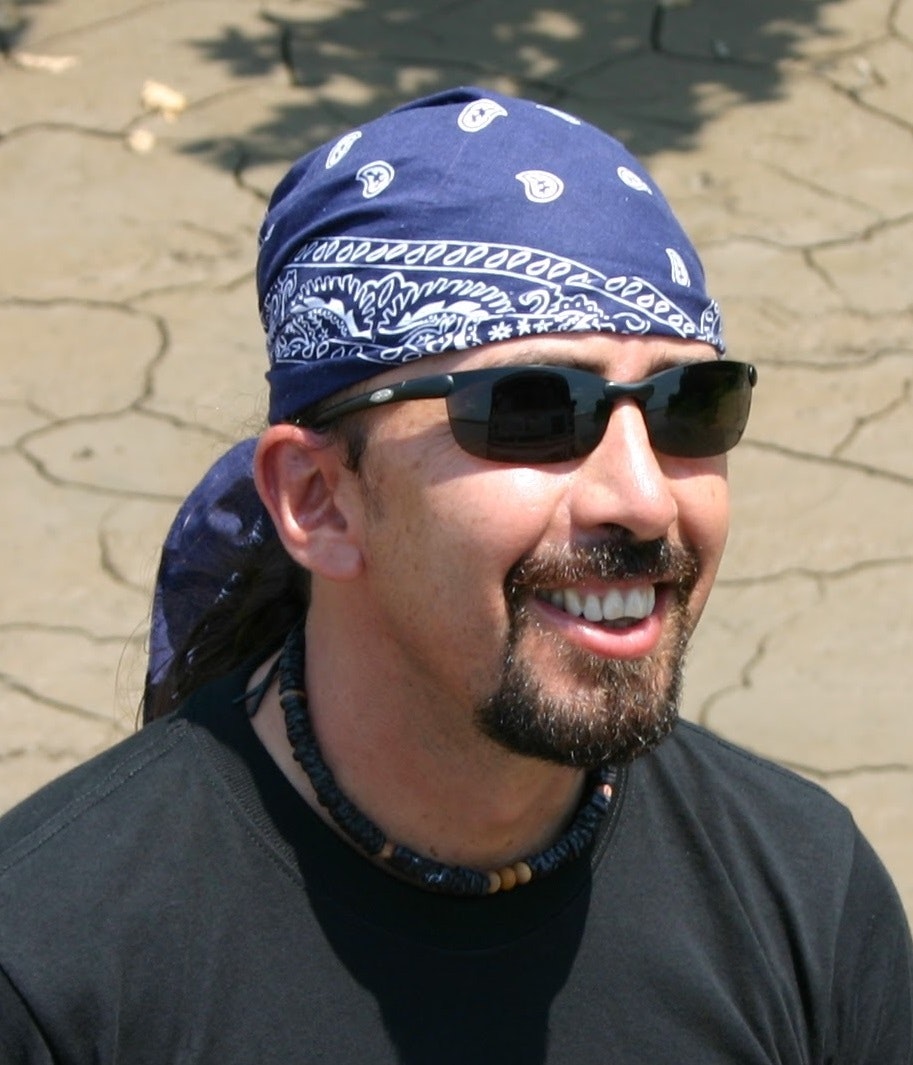River dolphins as flagship-species for fishery management and habitat conservation in the Amazon basin, Colombia

River dolphins are amongst the world’s most endangered cetaceans. Virtually wiped out in Asia as a result of competition with people for living space and fish, South America’s rivers present the best chance for ongoing freshwater dolphin survival. However, here too dolphins are persecuted by fishermen, accidentally caught in nets and struggle with water pollution. Recent studies show the Pink River Dolphins endemic to the Amazon and Orinoco basins face a new threat, and are being deliberately killed for export as fishing bait for the large catfish market in Colombia. The situation is a dramatic example of negative fishing practices that are threatening two of the largest river systems of the world.

Dr. Fernando Trujillo is Scientific Director of Foundation Omacha, an NGO established in 1993 to promote conservation of river species and their ecosystems in South America through education and research.
He leads a large team of conservationists who have since the 1990s worked to establish effective management initiatives to protect wildlife such as the giant otter, manatee, turtle and caiman. The Foundation is evaluating the level of competition between fisheries and river dolphins. Central to their work is a strong campaign to stop the killing of river dolphins and other endangered species for use in the catfish industry.

Fernando believes any strategy to introduce management practices in large rivers must link emblematic species such as the river dolphin with the economic activities of local people. Over the past five years, his efforts have focused on encouraging locals, especially fishermen and indigenous people, to take a key role in leading conservation, whilst at the same time developing practices for a healthy aquatic environment which do not harm dolphins. The Foundation is developing economic alternatives to fishing to reduce the pressure on wildlife, including dolphin watching in the Amazon, handicraft creation and a dolphin-friendly catfish certification scheme involving local hotels and restaurants.
Key facts:
-
- It is unknown how many river dolphins are killed each year for use as bait in Colombia. Between 30 to 40 per year are killed in the border areas between Colombia, Peru and Brazil.
- There are no governmental initiatives in place to protect fluvial areas in the Amazon and Orinoco basins, despite their importance to both endangered species and fisheries.
- There are five freshwater species of dolphin globally.

SOUTH AMERICAN DOLPHIN SURVEY COMPLETED
September 14th 2007
Santa Cruz, Bolivia – South America’s first-ever river dolphin census through the Amazon and Orinoco Rivers and its tributaries has come to an end. In the last 600km stretch along the Itenez River in Bolivia, scientists — led by the Faunagua Foundation (Bolivia) and Omacha Foundation (Colombia), with support from WFN, WWF, the Wildlife Conservation Society and Whale and Dolphin Conservation Society — counted 941 pink river dolphins.
2018 Continuation Funding
£70,000 over two years
River dolphins and Ramsar sites: a conservation strategy for the Amazon and Orinoco aquatic ecosystems
Fernando and his NGO, Omacha, promote trans-boundary conservation of freshwater habitats and their wildlife using river dolphins as a flagship in the Amazon and Orinoco basins, covering their entire global range across Bolivia, Brazil, Colombia, Ecuador, Peru and Venezuela. Their work has resulted in the declaration of key river dolphin habitats as Ramsar sites and significant advances in fisheries management and regulation of trade.
Continuation Funding will enable them to scale up their work to two new important dolphin nursery and feeding sites across Colombia and Ecuador, engaging with more than 25 indigenous communities (~4,000 people) to promote sustainable fishing practices and responsible dolphin observation as an alternative livelihood. An environmental education programme will target schools and broader audiences, encouraging and creating plans for waste management and recycling, particularly single-use plastic.
2021 Continuation Funding
£70,000 over two years
River dolphins: Scaling up the search
Fernando and his NGO Omacha promote transboundary conservation of freshwater habitats and their wildlife using pink river dolphins as a flagship in the Amazon and Orinoco basins. Over the past three decades, their work has led to big gains for river dolphins, including the designation of Ramsar sites and new sustainable fishing agreements. However, further action is needed: dolphin numbers are much lower in the Orinoco compared to the Amazon, and the region faces an onslaught of threats, including mercury pollution from mining, deforestation, largescale fires and water stress, with the area being one of the most vulnerable to climate change in South America.
With Continuation Funding, Fernando will gather data on river dolphin abundance and population trends in the Orinoco River and tributaries in Colombia and Venezuela. He will also expand work to the Rupunini River in Guyana, where no studies currently exist on the species and so represents a missing piece of the puzzle. The team will monitor mercury contamination and establish areas of climatic vulnerability in the Orinoco basin, with data laying the groundwork for conservation action. Key wetlands will be restored in the Orinoco and a network of local stakeholders will be set up to prevent and control fires, which consume approx. 200,000 ha of forest a year. Lastly, Fernando will train community members to rescue dolphins in rivers that have become cut off as a result of water stress, leaving these animals stranded.
This project will involve collaboration with 2019 Gold Award winner Jon Paul Rodriguez in Venezuela, and builds on Fernando’s past WFN-funded work to secure a future for river dolphins across South America.
Photo credits: Fernando Trujillo



